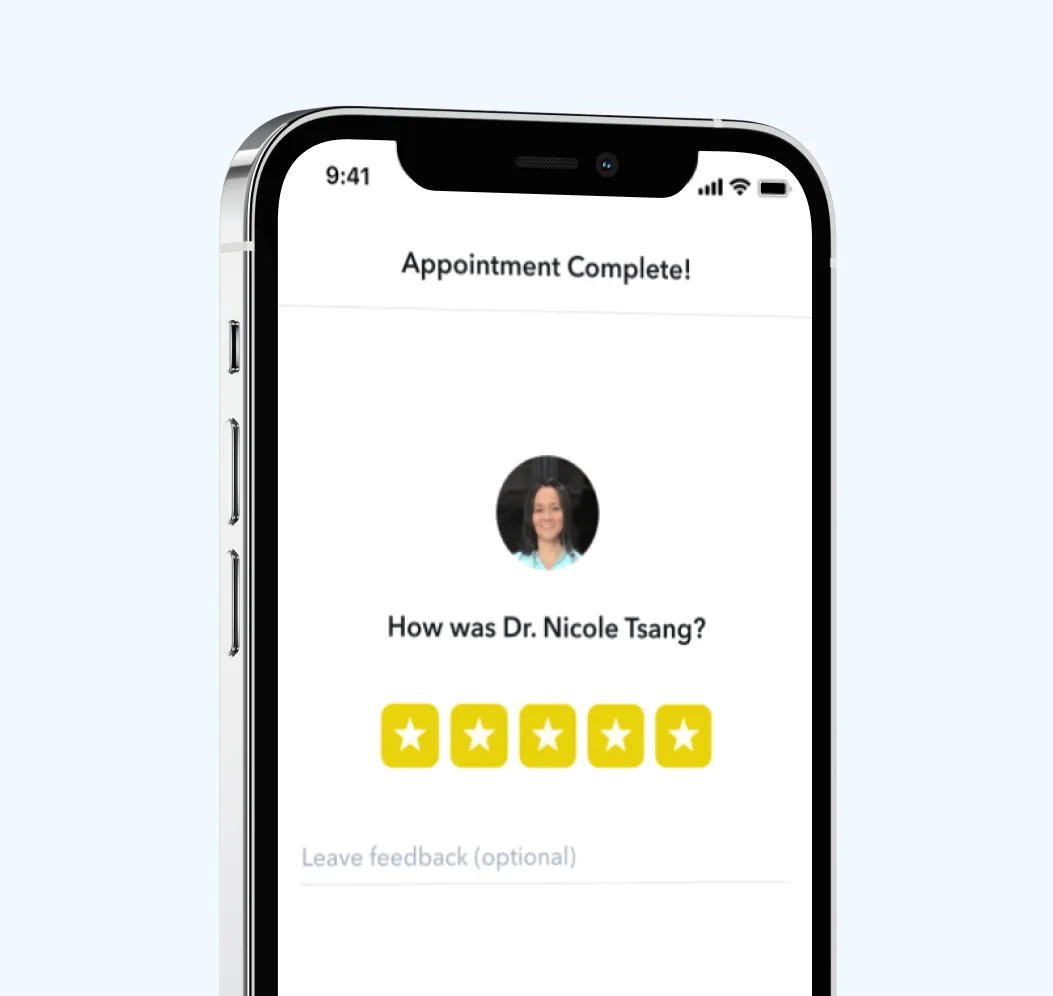All posts
Questions To Ask Before Choosing a Primary Care Physician

Circle Medical Staff
Apr 25, 2023
10 mins

Choosing a primary care physician is an important decision. Your primary care doctor is responsible for diagnoses, preventative care, treatment plans, coordinating specialist care and more. Finding the right care physician who understands your needs can make a big difference in your health and overall comfort when you need primary care. In this blog, we’ll guide you through some of the questions you should ask when choosing your primary care provider so that you can make the best decision for you.
What Should You Look For?
There are several factors you’ll want to take into consideration when you’re choosing a primary care physician. The first will be the type of primary care provider you want, as there are several options. You’ll also want to check the qualifications of your provider to ensure they’re board-certified. Other factors will include the type of care you need, whether they accept your insurance plan, their availability, the personality of the doctor, their approach to treatment and whether they’re in-person or online. With these considerations in mind, let’s dive a little deeper into each one.
Different Types of Providers
When choosing a primary care provider, you should consider the type of practitioner that is best suited for your health needs. The three main types of providers are physicians, physician assistants and nurse practitioners.
Physician
Physicians are medical doctors who have gone through extensive training and can diagnose and treat illnesses, order tests and treatments and refer patients to specialists.
Physician Assistants
Physician assistants are qualified professionals who may work under the direct supervision of a doctor depending on the state and can provide medical services such as examining patients, ordering and interpreting lab tests, diagnosing/treating illnesses, and prescribing medications.
Nurse Practitioner
Nurse practitioners are highly trained nurses who can provide preventive care, diagnose and treat illnesses, prescribe medications and order tests. Nurse practitioners typically collaborate with physicians to provide comprehensive care, though they can work independently. Nurse practitioners also often receive training in specialized fields.
Questions You Should Ask Yourself When Choosing a Doctor
It can help to create a checklist of questions when you’re trying to choose a doctor. This can give you a better idea on whether they meet your needs and your expectations for your health care provider. Here are some questions you may want to ask yourself.
Is the primary care physician board certified?
When choosing a primary care physician, it’s best to choose one that is board certified. Board certification is achieved when a physician or other medical professional can prove they have advanced knowledge and mastery in their field. Medical providers need to complete rigorous training and testing while also committing to continually learning and developing their professional knowledge.
Board certification shows that your physician has the knowledge and experience to help guide you as a patient. It also shows that they update their skill set to fit ongoing advances in the medical field. After you check to see if a doctor is board certified, you can also check to see if they have any additional certifications or training. This may be worth looking into if you require specific or special care.
What kind of care do you need?
Next, you need to consider what kind of care you need. Are you just needing routine check-ups? Are you seeking help for a specific condition? These kinds of questions need to be taken into account when choosing a physician.
Physicians are often trained in preventative help, treatment of various conditions, nutrition, mental health and other areas. Along with primary care, some physicians will also specialize in areas such as women’s health, men’s health, LGBTQ+ health and other areas of expertise.
By considering these factors and asking these questions, you can make sure you get matched to a primary care physician that offers the kind of care you need.
Will the medical practice accept your insurance?
If you have health insurance, you’ll want to ensure any potential physicians are in your network. You can narrow down your list by simply filtering out any out-of-network physician.
Before committing to a physician, make sure you talk to their office about how billing works. Ensure they’re in-network or ask if they accept your insurance plan if you’re out of network. If they do, ensure there aren’t additional fees for using your out-of-network plan. You’ll also want to ask them about payment plans or financial assistance for fees or costs that aren’t entirely covered by insurance if that’s important to you. In the event there is a specific Circle Medical provider you want to work with that is not in network, all providers are able to accept cash pay as an option.
What does the availability look like for appointments and emergencies?
Ask potential physicians about their appointment availability and hours. Some practices may offer extended or weekend hours. Some may even offer same-day or next-day appointments. If a physician is often booked out for weeks or months, you may not get care as efficiently as you’d prefer.
You should also ask about their availability for emergencies. Some providers may offer urgent care and have staff on-call who can fill in if they’re unavailable. Others may refer you to an urgent care or emergency facility. Circle Medical typically has same or next-day appointments available with a number of providers. In the event your usual provider is not available for a same or next-day appointment, any Circle Medical provider will still have instant access to your medical records with Circle Medical, and will be able to provide you with continuous care.
How soon can you be seen?
When you’re getting a new primary care physician, it may take a long time before they can see you for your first appointment. Depending on the office, it may take weeks or even months. If you want to get started with your care sooner, it’s best to find a provider that offers same-day or next-day appointments for first-time patients.
While this can sometimes be hard to find, there are providers out there that offer this. Circle Medical, for instance, can get you set up for your first online appointment on the same day and can typically get you in for a next-day appointment at the latest.
Do you prefer in-person or virtual visits?
Choosing between in-person and virtual visits is an important decision when choosing your primary care physician. While some people prefer in-person visits, virtual care can be more convenient and done from the comfort of home. As mentioned, virtual providers can typically get you into more appointments faster.
The advancement of telemedicine means that many conditions can be handled through virtual care. Virtual providers can diagnose conditions, build treatment plans, prescribe medication when medically appropriate, refer you to specialists and perform all the same functions as an in-person provider. If you don’t enjoy the hassle of making the trip to a doctor’s office, virtual care may be a more comfortable and preferable option for you.
Do you like the doctor’s personality or bedside manner?
You should always feel comfortable when speaking to your doctor. Your primary care physician will need to know your medical history and details about any health issues you may have. You want to be able to trust them with these details and feel comfortable sharing them.
Speaking to a doctor will help you determine if they’re approachable and if you enjoy their personality and bedside manner. Ensure your physician listens to you and your treatment preferences. A physician who cares and understands your needs is key to receiving the best care possible.
What is their approach to treatment?
It’s a good idea to ask about a doctor’s approach to treatment. Doctors may prefer holistic, integrative or other approaches. If you have a preferred approach, ensure you’re clear about it with your primary care physician.
Asking potential providers about how they set up treatment plans will give you a glimpse into what having them as a doctor will be like. If you don’t align with a doctor’s approach, you may want to go with a different provider.
Can they write prescriptions or doctor’s notes?
Finally, you should make sure your provider can write prescriptions and doctor’s notes for you. While prescriptions may not always be the first path to treatment, it’s an option you want available if necessary. If your primary care provider is unable to write prescriptions, you would have to get these medications from another provider. Doctor’s notes are also important, as you may occasionally need them when sick or injured. Make sure your provider can provide both of these services.
We Can Help You Find the Right Doctor for You!
Here at Circle Medical, we can match you to a primary care physician that is right for you! Our physicians, physician assistants and nurse practitioners are all primary care providers that are focused on your unique needs, guiding you on your health journey to help you feel your best. Circle Medical offers everything an in-person primary care provider offers and more. Our doctors can provide annual checkups, health diagnosis and treatment, COVID-19 testing and vaccination and more. All from the comfort of your home.
Book an Online Appointment with Circle Medical Today!
With over 200 primary care providers who care deeply about their patients’ health journeys, we’re sure to have a match for you at Circle Medical. Best of all, we can typically get you set up with a same-day or next-day appointment. There’s no need to wait to get started on the path to optimal health. Book your appointment and find your provider today!
Circle Medical Providers must meet all of the following standards:
-
Exceptionally qualified in their field
-
Board-certified
-
Deeply empathetic for patients
-
Follows evidence-based care guidelines
-
Embracing of diverse patient backgrounds
-
Impeccable record of previous care
400+ Primary Care Providers.
100% Confidence.
No matter which Provider you choose, you will be seen by a clinician who cares deeply about your health and wants to help you live your happiest, healthiest life.
Circle Medical Providers are held to an exceptionally high standard of compassionate, evidence-based care.
Book Appointment

